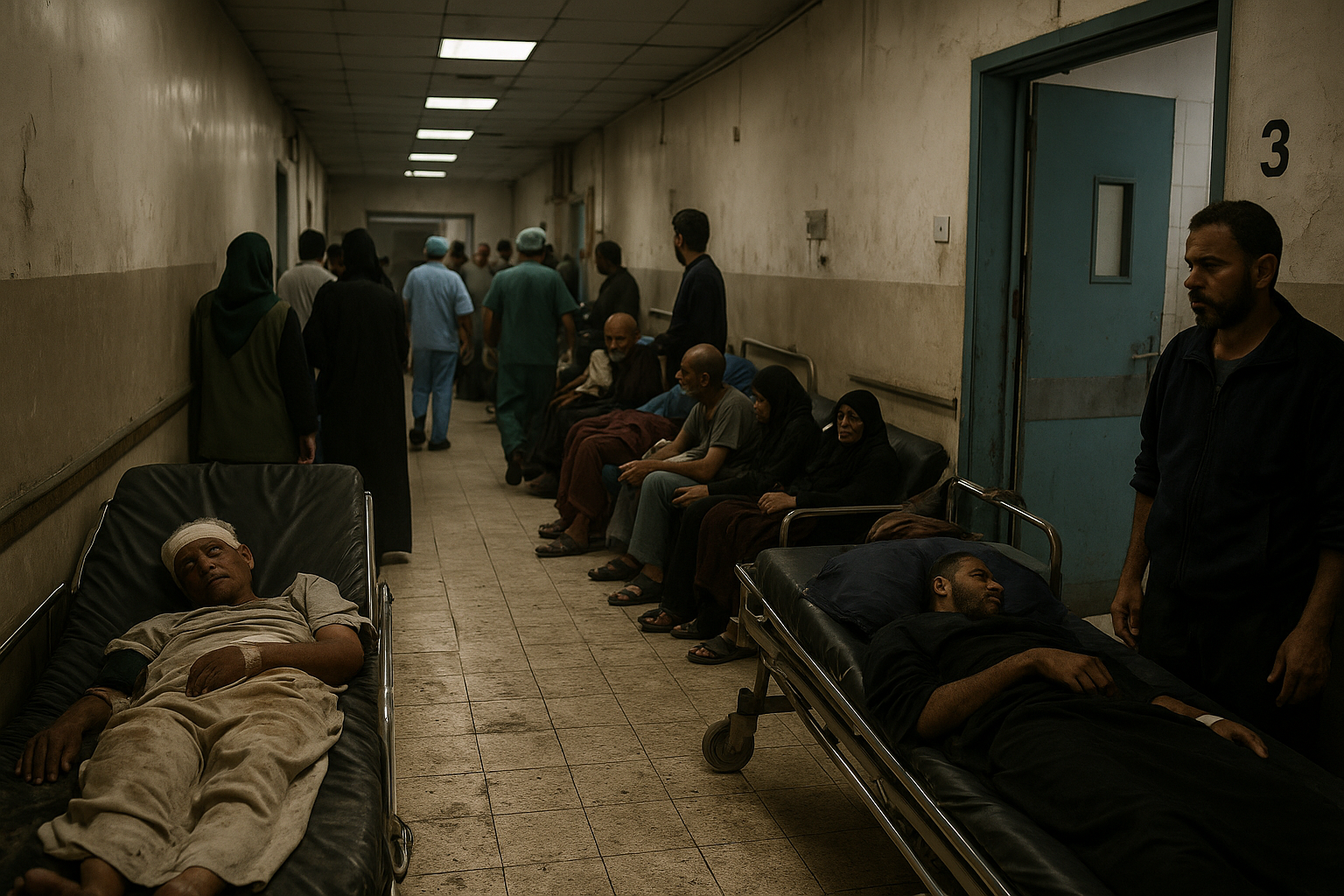Gaza on the Brink: UN Warns Fuel Shortage Threatens Humanitarian Collapse
Ambulances are unable to reach the wounded, and without refrigeration and sterilization, medicines and surgical tools become ineffective or unusable.

- Country:
- West Bank and Gaza
The United Nations has issued a stark warning that fuel shortages in Gaza have reached an acute crisis point, threatening the complete breakdown of humanitarian operations and placing the lives of over 2.1 million people at grave risk. After nearly two years of relentless conflict, the Gaza Strip is now teetering on the edge of a full-scale humanitarian collapse, driven by the catastrophic scarcity of fuel — the lifeblood of every essential system in the territory.
Fuel Powers Every Lifeline
Fuel in Gaza is not simply a utility; it is the engine that keeps people alive. It is the unseen force behind ambulances, hospitals, water and sanitation services, food production, and the broader humanitarian relief infrastructure. Without it, these lifelines disintegrate. “Fuel is the backbone of survival in Gaza,” the UN emphasized, adding that without a steady and adequate supply, there will be no functioning health services, clean water, or even communication.
Health System on the Edge of Total Collapse
The health sector is perhaps the most severely affected. Hospitals are already operating under devastating conditions, and many are now going dark. Maternity wards, neonatal intensive care units, and emergency rooms rely on diesel-powered generators to keep critical equipment running. As fuel dwindles, these essential services are shutting down, forcing medical staff to make impossible choices and placing thousands of vulnerable patients — including premature infants and people on life support — in immediate danger.
Ambulances are unable to reach the wounded, and without refrigeration and sterilization, medicines and surgical tools become ineffective or unusable. What was once a fragile health system is now unraveling entirely.
Collapse of Water and Sanitation Infrastructure
Gaza’s already-scarce access to clean water has become even more perilous. Fuel is needed to power desalination plants, water pumps, and wastewater treatment facilities. As these systems fail, families are left to drink unsafe water, increasing the risk of deadly waterborne diseases such as cholera and dysentery.
Sanitation systems, too, are ceasing to function. Solid waste is piling up in streets, and raw sewage is flooding densely populated areas. Public health experts warn that this toxic environment could spark a deadly outbreak, further compounding the suffering of an already battered population.
Food Access Crippled by Power Shortages
Fuel scarcity has also paralyzed food production and distribution. Community kitchens and commercial bakeries that produce essential bread for tens of thousands of families are unable to operate. Humanitarian trucks laden with food supplies are unable to move without fuel, while families struggle to cook or store what little food they have. Widespread food insecurity is now evolving into a full-blown hunger crisis, with famine looming for the most vulnerable communities.
Communication and Aid Coordination Breaking Down
The lack of fuel is also crippling Gaza’s communications infrastructure. Without power, internet access and telecommunications services are failing. This not only isolates families and individuals from one another but also disables critical coordination between humanitarian agencies and field staff. The absence of functioning communications is a death sentence in emergencies, where timing and information save lives.
A Brief Ray of Hope — But Far From Enough
This week, a small quantity of fuel entered Gaza — the first in 130 days — offering a rare flicker of hope. However, the UN stresses that the shipment was woefully insufficient, meeting only a small fraction of Gaza’s daily needs. The minimal deliveries highlight the urgent necessity of a sustained and scalable solution.
Call for Immediate and Consistent Fuel Access
The UN and its humanitarian partners are pleading with all parties to allow consistent, unimpeded access to fuel into Gaza. “We cannot overstate the urgency of this moment,” the UN declared. “Fuel must be allowed into Gaza in sufficient quantities and on a continuous basis to sustain life-saving operations.”
Failure to act will mean a total breakdown of humanitarian assistance, with consequences that are both immediate and long-lasting. If fuel supplies are not restored quickly and comprehensively, the international community may witness the complete collapse of aid delivery in Gaza — a preventable tragedy with global implications.
ALSO READ
Gaza Struggles Amid Water Crisis and Ongoing Conflict
Future-ready Health Services: Yogi Adityanath's Vision for Uttar Pradesh
Madhesh Province Battles Water Crisis with Emergency Measures
Deputy Minister Urges Winterveld to Protect Rivers Amid National Water Crisis
Thames Water Crisis: Regulatory Overhaul to Prevent Nationalization










